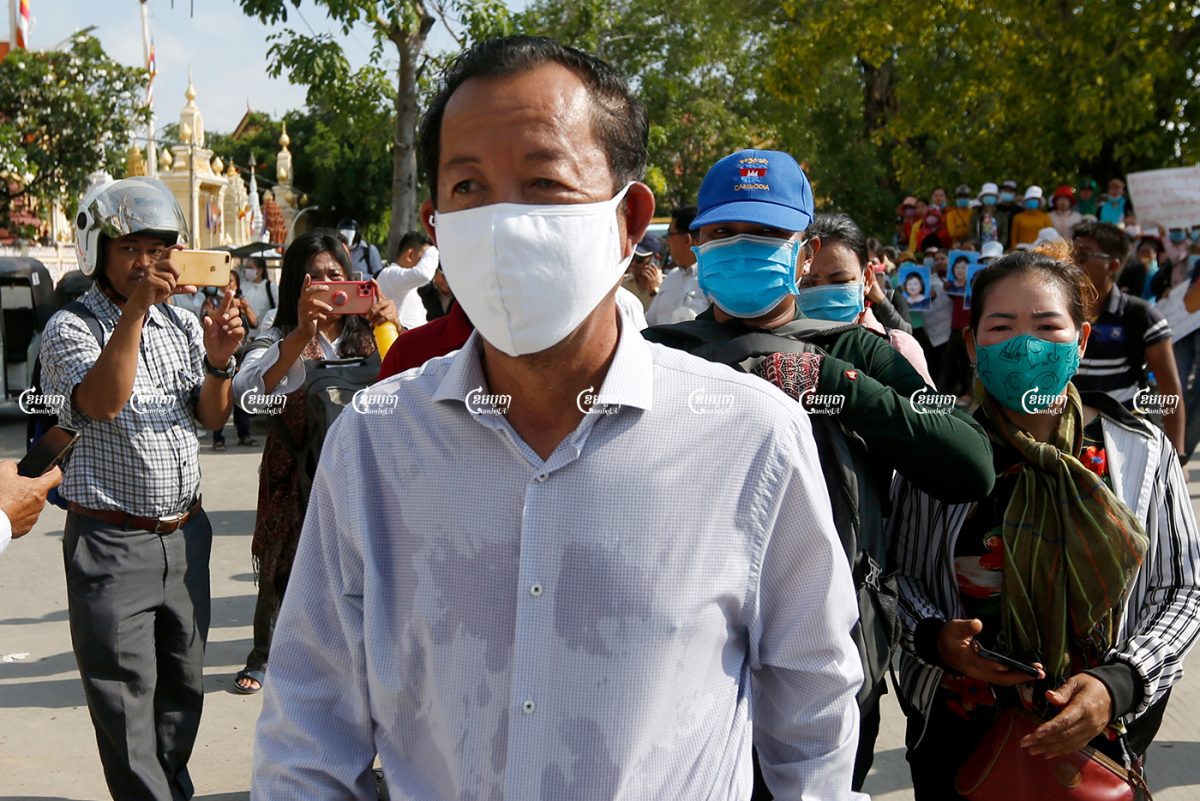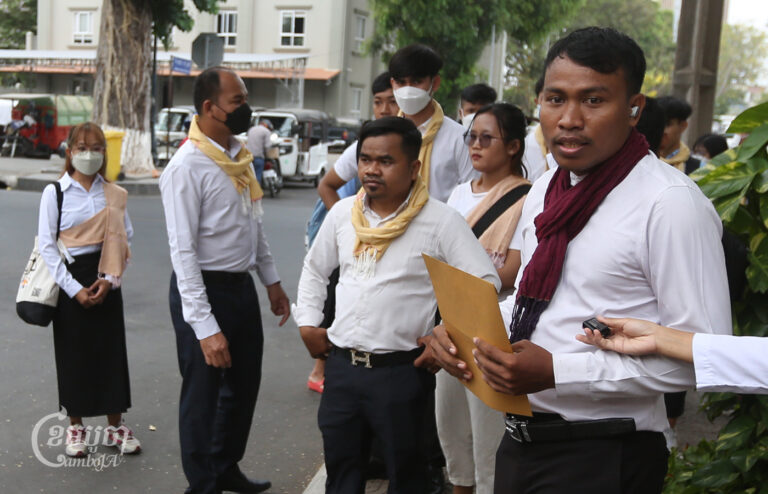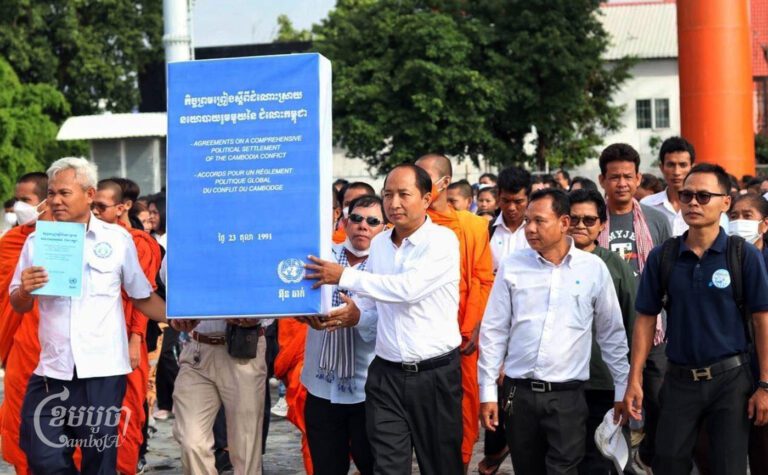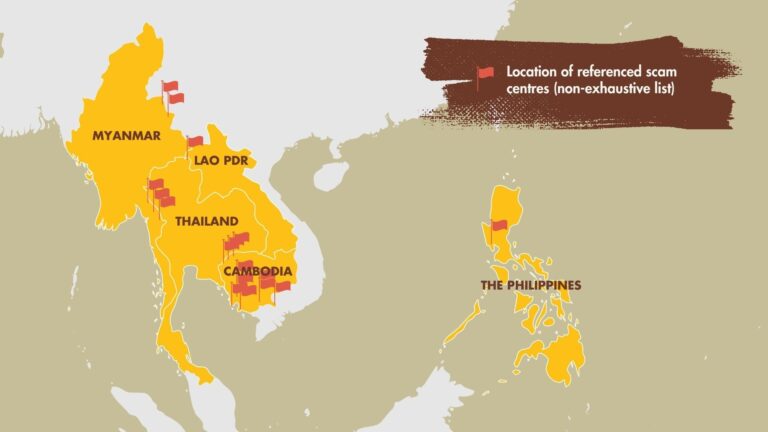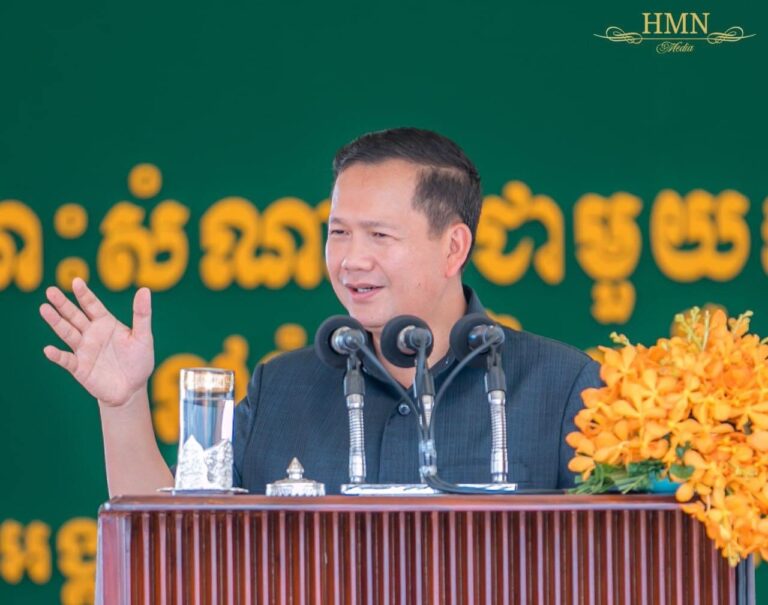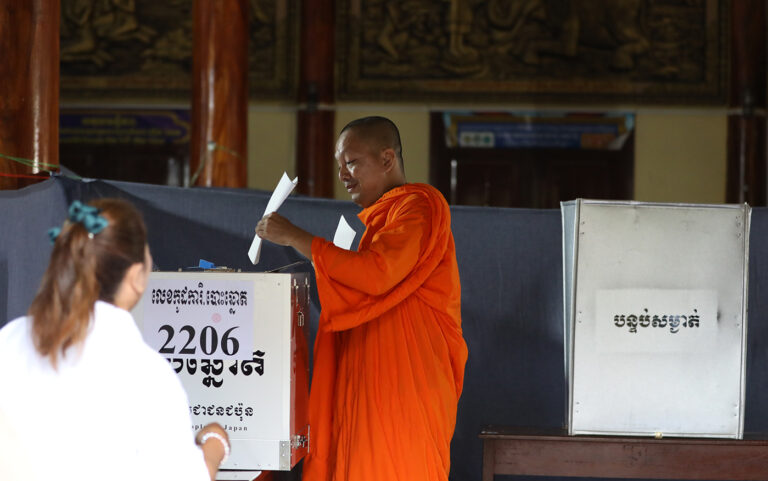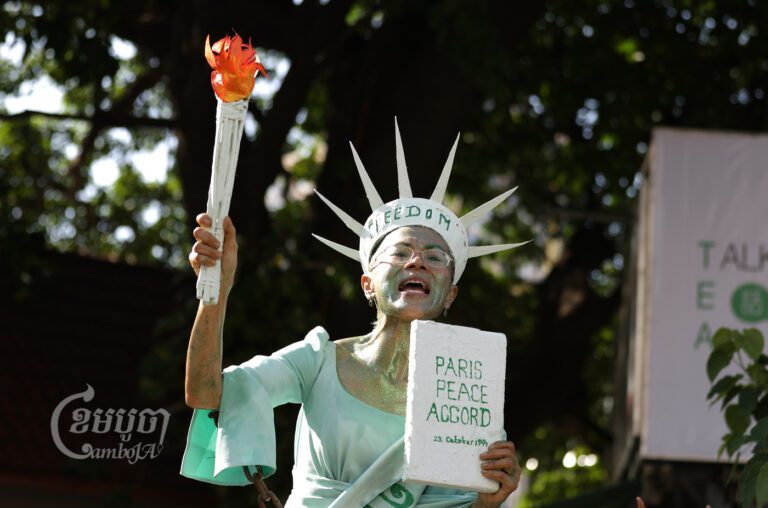UN human rights experts criticized Cambodian authorities over the conviction of union leader Rong Chhun, who was sentenced to two years in prison last week over comments he made about border demarcation. Two other activists were handed 20 month sentences for later holding a peaceful demonstration calling for his release.
“The prison terms and heavy fines handed to these three activists are neither justified nor proportionate,” Vitit Muntarbhorn, UN Special Rapporteur on the situation of human rights in Cambodia, said in a statement issued Tuesday. “I am extremely alarmed that the court convicted the three human rights defenders for acts that are protected by their rights to freedom of expression and peaceful assembly, rights guaranteed by Cambodian and international law.”
UN Special Rapporteur on the situation of human rights defenders Mary Lawlor said “human rights defenders should never be arrested, detained or convicted for their efforts to protect human rights of others.”
On August 18, the Phnom Penh Municipal Court sentenced union leader Rong Chhun to two years in prison on incitement charges for comments he made suggesting that a community along the Vietnam border had lost land during the border’s demarcation. Activists Sar Kanika and Ton Nimol were both sentenced to 20 months in prison on charges of incitement to cause social disorder for having publicly called for the imprisoned unionist’s release.
All three defendants were each fined 2 million riel ($490) and ordered to pay 400 million riel ($98,000) in compensation to the Cambodian Border Affairs Committee, the body responsible for overseeing the demarcation of the nation’s borders.
Chhun, who is president of the Cambodian Confederation of Unions and a member of the Cambodian Watchdog Council, was arrested on July 31 last year and had been held in pre-trial detention ever since.
Chhun’s arrest came after he wrote a Facebook post and made other comments on Radio Free Asia (RFA) in which he claimed that farmers in the border province of Tbong Khmum had lost land during the demarcation of the boundary with Vietnam. Chhun had travelled to the border on July 20 to look into the allegations and published a statement the next day on Facebook. Kanika and Nimol were both arrested in August after having taken part in peaceful demonstrations calling for the union leader’s release.
“We are seriously concerned that the Cambodian government uses the vaguely-worded Articles 494 and 495 of the Criminal Code against ‘incitement to create felony’ to crack down on dissent and to stifle free expression,” the UN experts added in the statement, noting that reportedly 17 rights defenders had been charged or convicted under the incitement articles.
“We are extremely worried that these two Articles are being used systematically to target human rights defenders,” the experts said. “We call on the Government to cease using the law to target individuals who are working to promote and protect the rights of others.”
In response, the Permanent Mission of the Kingdom of Cambodia in Geneva issued a press statement criticizing the UN experts.
“It is with deep regret that the special rapporteurs have never ever stressed that the exercise of freedom of expression, peaceful assembly and associations, carries with it special duties, responsibilities and limitations, as stipulated in the International Covenant on Civil and Political Rights,” the statement said. “Cambodia’s Constitution protects freedom of expression, but not freedom to spread fake news, throw slander, incite violence and sow racial hatred.”
Choung Choungy, a lawyer for Rong Chhun and Sar Kanika said that he was disappointed with the court’s ruling.
“It’s a complete injustice for my clients. Sar Kanika was not involved in anything, not even going to the border and releasing a statement, but the court convicted and sentenced her for 20 months,” Choungy said. “When Rong Chhun went to a border, he did not make any chaos, and his statement aims to inform the public about the situation of the land dispute over there and suggest to the government to have proper resolutions to hand land to people to farm as normal and deploy more authorities along the border — it was not incitement or trying to make instability in our society. But the court convicted him and sentenced him to two years in prison on an incitement charge.”
He added that he plans to meet his clients Wednesday to get permission from them in order to appeal the ruling.
President of Cambodian Institute for Democracy Pa Chanroeun said the sentence was excessive and unjust and would likely frighten other people from making any criticism of the government.
“It is the duty of an active citizen to observe border issues in democratic society to critique and show their perspectives which are supported by the Cambodian Constitution and universal human rights,” he said.
“That decision can affect the participation of people in social, economic and political rights and abuse their freedom of expression. In a democracy, it’s important to have a voice from citizens to get their feedback in order to make a better policy. It also affects international reputation because there are many comments, especially the EBA withdrawal from the EU, that came due to human rights violations,” he said.
He noted that the UN statement reflected that Cambodia is a signatory to many international rights conventions and has an obligation to follow them.
Phnom Penh Municipal Court spokesman Y Rin could not be reached for comment, nor could Judge Le Sokha, who was in charge of the case.
Justice Ministry spokesman Chin Malin could not be reached for comment.


